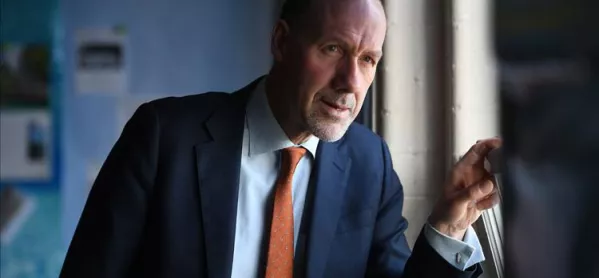- Home
- ‘I salute the teachers, TAs and librarians who inspire a love of reading in children for whom books are alien’
‘I salute the teachers, TAs and librarians who inspire a love of reading in children for whom books are alien’

You’re doing something miraculous, something uniquely human, at the moment. It’s easy not to notice, but then difficult not to celebrate.
You’re looking at words on a screen and seeing images, hearing a voice, unfurling a mental thread and responding to words from a brain that isn’t your own. Then you’re deciding how far you agree or disagree with them, and whether to keep going.
You’re reading. It’s one of the extraordinary achievements of human beings.
I suspect we sometimes underestimate just how world-changing the emergence of reading and writing has proved for humans. Suddenly, we broke through the confines of time and space and found a mode for passing on knowledge, ideas, culture and stories from one generation to the next, thereby turbo-charging the development of our species.
This was the historic emergence of literacy when we fully became, as linguist Frank Palmer described us, homo grammaticus.
Reading has been in the educational headlines for a week or more recently. First, there was the Ofsted report Bold Beginnings. This was a survey of good practice in Reception years. Inspectors couldn’t have been more explicit about the centrality of literacy. Make the teaching of reading the “core purpose” of the Reception year, they said.
Then there was the publication of another of those international league tables. Too often in the past we have used these to send ourselves to the collective naughty step, publicly bewailing our national shortcomings.
But the PIRLS 2016 assessment of the reading knowledge of 10-year-olds across 50 countries contained good news for England and Northern Ireland, with both showing up in the top 10. Suddenly international league tables were back in vogue.
Nurturing a love of reading
Schools minister Nick Gibb was quick, of course, to ascribe this to the teaching of phonics. But that is to understate the longer-term achievement of those real stars of the show - the teachers and literacy coordinators who, year on year, have kept reading at the core of so many schools, doing their best to maintain a love of reading in a society which can too easily value the instant rewards of screen-hopping over sustained modes of reading.
Then this week there was a disturbing report by the National Literacy Trust (NLT) that highlighted the underbelly of literacy, its social mobility implications and consequences. The NLT report suggested that more than 770,000 UK children don’t own a book, and it found that children who do own a book are 15 times more likely to read above the level expected for their age.
So, no, we certainly haven’t cracked the reading challenge yet. Those of us who are readers, fully paid-up members of the literacy club, will find it unthinkable that there are young people out there who don’t have a joy of book ownership, of being able to lose themselves in a world woven through words, who don’t routinely retreat from online hubris to the imaginative sanctuary of their own books.
People like us are, in some ways, part of the problem. As Thomas Newkirk puts it in his book Misreading Masculinity: boys, literacy and popular culture:
“Too often the argument for reading is made by those who have spent their lives as insiders; the pleasures of solitary reading are so obvious, the value of reading so self-evident, that we fail to appreciate how utterly strange reading is to the outsider.”
We evangelists of reading can seem, like so many evangelists, too alarmingly evangelical. If you’re a child from a background without books, from a place where you never see people lost in reading, then you need someone who demystifies the habit and offers you exactly the right inaugural text to kick-start your reading. This doesn’t happen by chance.
It’s why the hints dropped in education secretary Justine Greening’s Manchester conference speech in October about a renewed focus on literacy in the early years should be welcomed. We certainly need to spotlight and share approaches and initiatives that embed reading from a young age.
We need also to celebrate schools that maintain a commitment to wide-ranging, joyful reading for pleasure, rather than texts deployed merely for comprehension and analysis. It’s why we should ensure that any primary/secondary transition builds on, rather than marginalises, a child’s reading history, and why the key stage 3 curriculum should provide richer, more challenging, more diverse reading matter across subjects.
Yes, there’s more for us to do on reading. But there’s also the opportunity to salute what so many teachers, teaching assistants and librarians are already doing - normalising reading for children for whom it may always have been an irrelevant pastime.
In the process, these adults are doing much more than teaching about the pleasures and benefits of reading. They are also demonstrating to children one of the distinctive reminders of what it is to be uniquely human.
Geoff Barton is general secretary of the Association of School and College Leaders. He tweets @RealGeoffBarton
Want to keep up with the latest education news and opinion? Follow Tes on Twitter and Instagram, and like Tes on Facebook
Keep reading for just £1 per month
You've reached your limit of free articles this month. Subscribe for £1 per month for three months and get:
- Unlimited access to all Tes magazine content
- Exclusive subscriber-only stories
- Award-winning email newsletters



